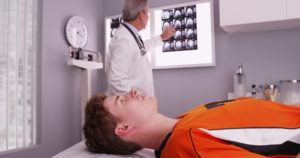Getting injured at the hands of someone else’s negligence can be traumatizing. Unfortunately, this scenario happens every day with car accidents. While whiplash and bruising are common examples that people think of when they think of car accident injuries, dental injuries should not be overlooked. It is easy to brush off the tooth pain, take some over-the-counter medication, and hope that it heals soon. However, if you do not get your dental injuries checked by a dentist immediately after an accident, you risk losing out on the compensation you deserve. Dental injuries can be for more than a chipped tooth, but they can also cause you to have permanent problems with speaking or eating. If you are the victim in a car accident and have suffered from dental damage, please reach out to a dentist now to see how they can help you with your treatment and your claim.
How can a car accident cause dental injuries?
When you are in a car accident, it is not uncommon for your head and mouth to be struck by an object, whether it is the steering wheel, an airbag, or the side of the car. When part of your vehicle or an object hits your mouth like this, it is a direct injury that can result in serious damage. On the other hand, if someone rear ends you, it can cause an indirect injury. This happens when you shut your mouth quickly and your upper teeth crush down on your lower teeth.
Common Types of Dental Injuries After a Car Accident
There are many common types of dental injuries after a person has been in a car accident. Some of these are:
- Chipped or Fractured Tooth. This can range from mild to severe, and it happens when the enamel is chipped off of your tooth. More serious cases involve damage to the dentin and pulp layers of the teeth. While this is not a very hard injury for your dentist to fix, it is still imperative that you see your dentist right away. A chipped tooth can cause bacteria to get in and begin decaying that tooth. Your dentist may be able to fix this quickly with cosmetic bonding, or they may need to perform a root canal.
- Tooth Luxation. When you sustain this injury, it means that your tooth is loose but is not fully out of its socket. You will likely be able to wiggle it side to side or back and forth. It is possible for your dentist to carefully push the tooth back in place.
- Avulsed Tooth. When you are dealing with an avulsed tooth, it means the tooth is knocked out of your socket completely. While this may sound like permanent damage, it is possible for your dentist to re-insert your tooth if you can get to your dentist soon after the accident occurred. However, if they can’t save it, they may turn to implants or veneers as another option.
When you visit your dentist, you should tell them exactly how this injury occurred and that you are seeking compensation for the damages. For more information on how a dentist can help you with your dental implants after a car accident, reach out to a dental office today.
Resources:
Wikipedia, Dental Care
Alliance Dentistry, Dental Implants Cary, NC

